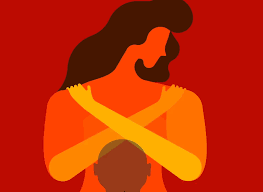crises defining adolescent girls
photo credit:asiapacific.unwomen.org
CRISES DEFINING ADOLESCENT GIRLS
The sites of insecurity for adolescent
girls, as well the ways in which they respond and continue to strive towards
building safer communities for themselves and those around them. Adolescent
girls experience crisis differently than their male peers and adult women.
During a crisis, they are particularly vulnerable to violence and exploitation
policy makers and the humanitarian community view adolescent girls as powerless
and rarely consult them about decision that impact their lives for example, 60% of the 13.2 million out of school children in
Nigeria are girls.
The 2020 UN Development program said in its
development report that, 43% of women ages 20 to 24 had been married by the age
of 18 in Nigeria. Child marriage has deep and lasting impacts on them from
making their own life choices, disrupts their education, subjects them to
violence and discrimination, and denies their full participation in economic,
political, and social life. Eleven of Nigeria’s 36 states have yet to adopt the
child rights act. Recent reports show that in some northern Nigeria states, 78%
of girls marry before the age of 18. Girls subjected to female genital
mutilation are at increased risk of child marriage and dropping out of school
and threatening their ability to build a better future for themselves their
families and their community. According to a new report by ‘Save the Children’
reports show that around 5 million children across Burkina Faso, Mali, and
Niger in the central Sahel region of West Africa face a growing humanitarian
crisis that could result in more such marriages also the Sahel ,which stretches
from the Atlantic ocean to the Red Sea, consist of 10 countries- Senegal,
Mauritania, Mali, Burkina Faso, Algeria, Niger, Nigeria, Chad, Sudan and Eritrea
has the rate of child marriage calculated based on the number of women age 20
to 24 years, who were married before the age of 18. The true plague facing the
girl child right now is gender- based violence. Seems to be increasing rather
than declining despite the global social evolution. At least 10 million more
girls at risk of being forced into marriage due to Covid-19 pandemic, according
to UNICEF released in March, 2021.
Some 34% of girls in Africa are
married before they reach the age of 18, according to the UNICEF. UNICEF
reports that at least 200 million girls and women alive today have undergone
FGM. Overtime, prevalence of the practice has gradually eroded, but the effects
of Covid-19 threatens to slow or reverse that trend. According to Plan International
reports that the Southern Africa region, comprising Angola, Botswana, Lesotho,
Mozambique, Namibia, South Africa, Swaziland, Zambia and Zimbabwe is at the
front line of some of the most extreme impacts of climate change, facing both
slow and rapid onset extreme weather events and placing many areas in a state
of protracted crisis. Protracted crisis affects adolescent girls in ways that
are different to women and children.
Education is crucial in building
knowledge, skills, attitudes and behaviors needed for tackling the impacts of
conflict, rising poverty, child marriage and insecurity. Providing adolescent
girls with opportunities to remain in school is not only the right thing to do,
it is also one of the smartest economic investment. The common saying that ‘’
when you empower a woman you have empowered a nation, and when you educate a
girl child, you have educated a generation.
Email: Oladosuadebola11@gmail.com


Comments
Post a Comment